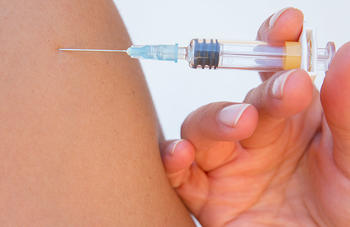
According to the WHO, thanks to widespread vaccinations, approximately 2 to 3 million people in the world are managed to be protected every year. Common vaccinations against smallpox carried out in the 70s contributed to the total eradication of this dangerous disease. A similar effect was achieved with the vaccination against polio. Currently only 3 countries are the so-called -endemic areas of the disease - the rest of the world is free of the poliovirus.
Vaccinations also reduce the risk of serious disease complications particularly dangerous for young children, the elderly, the chronically ill and people with weakened immune systems. Through vaccination we protect not only ourselves but also our surroundings, limiting transmission of micro-organisms, and thus – reducing the number of potentially infected people.
The vaccination also manages to reduce the use of antibiotics which decreases the growing resistance of micro-organisms to these drugs. We lower the risk of hospitalization and longer absences from work due to illnesses thereby lowering the direct and indirect social costs.
Without a doubt, in terms of public expenditure, vaccinations are one of the most cost-effective medical interventions.
Detailed information on vaccinations is available at the educational campaign website of INFARMA www.zaszczepsiewiedza.pl.



